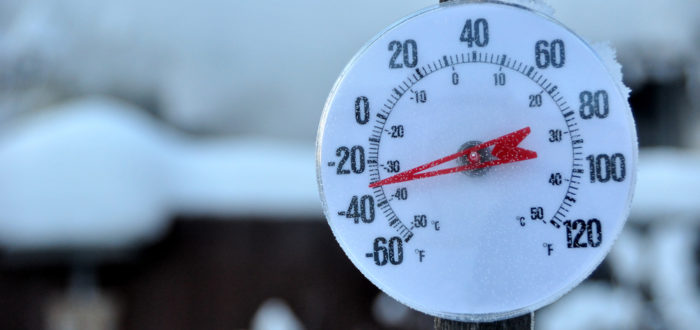The longer nights are upon us. The mornings are already feeling far more brisk. Winter is approaching.
The colder weather signals a few things, one being a change in our wardrobe! Warm sweaters, thick jackets, hats and scarves are closet must-haves. We’ve likely all heard the adage that keeping warm in the winter months can help keep you healthy.
But did you know that cold weather can affect your hearing? Cold temperatures can cause physical changes in your ear which can result in pain, tinnitus, dizziness, and sometimes hearing loss.
Can Cold Weather Affect Tinnitus?
According to CDC estimates, about 25 million Americans (10 percent of the U.S. adult population) have experienced tinnitus lasting at least five minutes in the past year. Tinnitus, also known as ringing in the ears, can be very bothersome.
If you’ve experienced tinnitus in the past, you probably want to prevent its recurrence. Avoiding exposure to loud noise, keeping on top of your hearing health assessments, and monitoring your medications can all help.
One thing, however, you may not have considered is how the weather can affect your tinnitus.
Cold Weather & Your Hearing
The winter months can bring with them additional risks to your hearing. A few of these include:
Exotosis
Exostosis of the ear canal is a condition involving abnormal bone growth in the ear canal. Also known as surfer’s ear, it is one of the more severe, yet preventable, conditions that can be caused by repeatedly exposing the ears to freezing weather.
Surfer’s Ear
Surfer’s ear is the result of your body trying to protect your ears from cold water and wind. It often involves bone growing on top of an existing bone. It causes the bone surrounding your ear canal to thicken, which can impact your hearing. It increases risk of infection, and a common symptom of exostosis are frequent ear infections.
As the name would suggest, it’s a condition most common in surfer’s. It can, however, also develop if you do not appropriately protect your ears in the cold weather. Surfer’s ear is known to cause tinnitus, and can in some cases cause hearing loss. Preventative measures include keeping your ears warm with a long hat or ear warmers. If you plan on swimming, wear a cap or surf plugs.
Cold Weather & Tinnitus
In 2015, the European Archives of Oto-Rhino-Laryngology published a research study that looked at links between seasons and Google searches for the phrase ‘Tinnitus.’
According to the study, “Our findings indicate that there are significant seasonal trends for Internet search queries for tinnitus, with a zenith in winter months.” Although more research into this needed, the results correlate to some of the more common things associated with winter that link to tinnitus:
- Cold and flu – Congestion and sinus pressure, common symptoms of a cold or flu, can worsen the perception of tinnitus.
- Reduced physical activity – Lower levels of physical activity can lead to higher blood pressure. High blood pressure and hypertension are both known to make tinnitus more noticeable.
- Depression and stress – The holiday season can be a stressful time for many of us. Seasonal affective disorder (SAD) affects people most commonly in the winter, and can result in depression. Both stress and depression are known to have links to tinnitus
Cold Weather & Hearing Aids
Cold, damp weather can cause condensation inside hearing aids, which can lead to water damage. Hearing aid batteries can also be affected by the cold, so make sure to keep extra spare batteries during the colder months.
Here are some tips to protect your device from moisture:
- Check the IP level of your device, consider purchasing a more water resistant one.
- Remove the batteries overnight.
- Wear a hearing aid sweatband whilst wrapped up.
- Use a dry aid kit overnight.
We’ve got a few cold months ahead of us. But don’t let that get you down! Follow the tips above to protect your hearing during the winter. If you’d like to discuss any of the above information in further detail, contact us at Hearing, Balance, & Speech Center to speak with one of our hearing professionals. We are here to take care of all your listening needs. Call us on (203) 208-3678 or request an appointment online.

